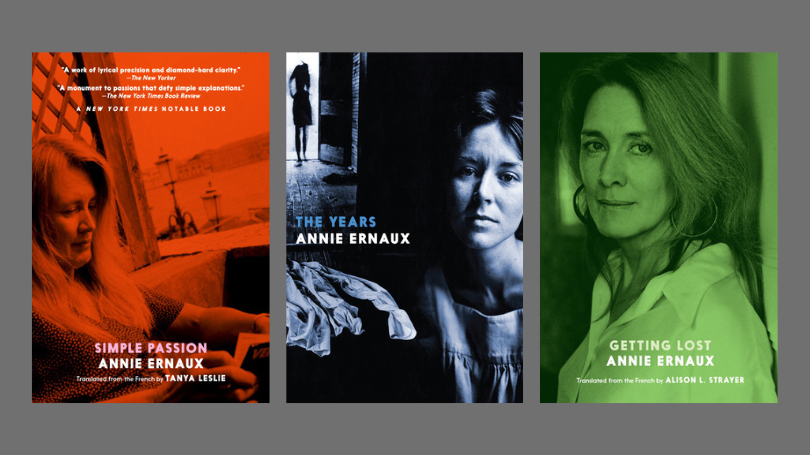

In a brief Q&A, Professor Lucas Hollister considers the newest recipient of the Nobel Prize in Literature.
On Thursday, the Nobel Prize in Literature was awarded to French author Annie Ernaux "for the courage and clinical acuity with which she uncovers the roots, estrangements, and collective restraints of personal memory."
Born in Normandy in 1940, Ernaux is "one of France's most respected and widely read authors," says Lucas Hollister, an associate professor of French and Italian languages and literatures.
"She is known for writing candidly, in a deceptively simple style, about her intimate life and its intersection with broader social and political forces," Hollister says. "She has described her writing as 'auto-socio-fiction,' and is concerned with tracing the points of contact between the personal and the political."
Ernaux is only the 16th woman to win the Nobel. In a brief Q&A, Hollister considers her legacy and which of her books might be best for readers new to her work.

Were you surprised that Ernaux was chosen to receive this year's Nobel Prize in Literature?
I was pleasantly surprised, mostly because I rarely agree with the decision for this prize, but Ernaux's profile and status certainly make her a logical choice. Although there have been some notable exceptions, the Nobel Prize has a reputation for going to writers whose work has a strong political dimension. Ernaux's writing about her illegal abortion as a young woman, her delicate chronicles of her own education and how it affected her relationship to her working-class parents, as well as her public stances opposing far-right anti-immigrant writers like Richard Millet make her a natural fit for the prize.
How would you describe Ernaux's legacy?
She has influenced an entire generation of writers in France interested in sociological or autofictional approaches to literature. Édouard Louis, a recent Montgomery Fellow here at Dartmouth, credits Ernaux with inspiring him to write about his experiences of growing up gay in northern France. The sociologist Didier Eribon, another recent Montgomery Fellow, has made similar comments since the announcement. Her writing on abortion remains searingly relevant and is likely to be widely read and taught in the years to come.
What does this honor represent for France?
Ernaux is the third French writer to win the prize since the turn of the century, joining J. M. G. Le Clézio and Patrick Modiano. More interesting than what it means for France, I think, is what this decision says about the kind of literature that the Academy wants to promote. After the controversial award of the Nobel Prize to Peter Handke, had the award been given to a writer like Michel Houellebecq, who is probably the most famous living novelist in France and whose work has a distinctly alt-right flavor, it would have sent a very different message about what counts as significant and praiseworthy in contemporary literature.
For those new to Ernaux, which of her works would you recommend?
I have always been particularly fond of La Place, which is about Ernaux's education and her relationship to her father, and of Simple Passion. In a post-Dobbs United States, Cleaned Out and Happening are essential accounts of the experience of obtaining an illegal abortion, and I will be teaching the latter in French 25 this winter term. From her more recent work, The Years also stands out as a remarkable book.